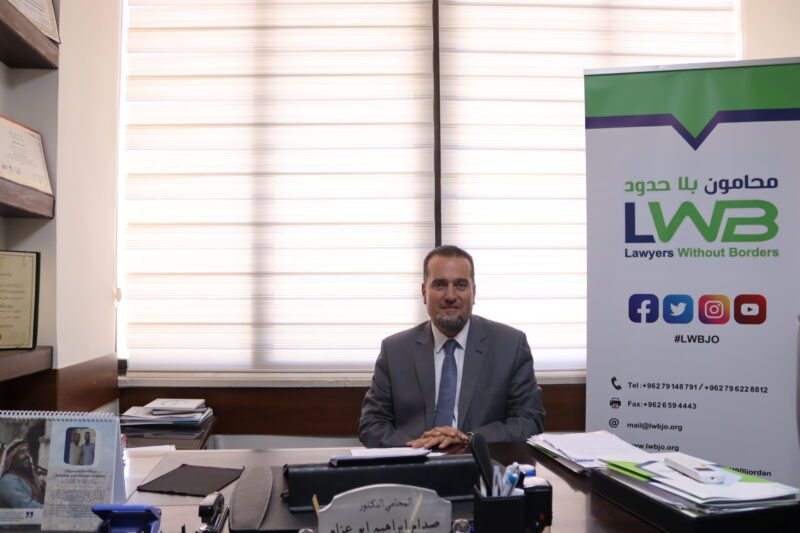“Civil society organizations (CSOs) in Jordan face numerous challenges starting from the lengthy registration process, to banking restrictions, to the foreign funding approval process, despite the significant role CSOs play alongside the government in shaping public policies and contributing to the national economy.” Said Dr. Saddam Abu Azzam, Executive Director of Lawyers Without Borders (LWB), one of eight CSOs that were awarded by the Strengthening Civil Society and Media Systems (Sawt) Activity to implement activities relevant to the upcoming Universal Periodic Review (UPR) session for Jordan. LWB’s UPR shadow report focused on the reality of civil society in Jordan and its associated legal environment, which encouraged Ministry of Social Development (MoSD) to invite LWB to sit in the Law on Societies reform committee.
Building on its solid partnership with Jordanian universities, LWB worked through a youth coalition that was formed to develop the UPR shadow report and submit it through (LWB) to the United Nations Human Rights Council. Guided and trained by a human rights expert, the youth coalition identified a priority area that should be addressed through the shadow report, which is the right to establish CSOs in Jordan and revisit the current Law on Societies. This entailed assessing the current Law that revealed pressing challenges facing CSOs in Jordan and demonstrated a clear gap in the Law when compared to constitutional and international standards.
Recently, the Societies Amendment Law Committee was reconstituted by Ministry of Social Development (MoSD) to study previous proposals and discuss new topics such as classification and evaluation of Societies. After being presented with the LWB’s UPR shadow report that focused on the Law on Societies, H.E. Minister of Social Development invited LWB to sit on the Law on Societies committee along with other CSOs including Rased, Justice Center for Legal Aid (JCLA), and Karak Castle Center for Consultations & Training. Their efforts focused on addressing key issues in the Law such as CSOs classification criteria, dissolution procedures, and operational restrictions. “Without the specialized shadow report we submitted, we wouldn’t have been chosen to sit on the committee.” Said Dr. Abu Azzam.
To initiate the Law amendment process, MoSD held a 3-day workshop at the Dead Sea to discuss the general framework for amending the Law that was attended by high level representatives from the Prime Ministry, senators, and parliamentarians. LWB represented by Dr. Abu Azzam were invited to that workshop to present highlight of their shadow report. “In the presence of government officials and representatives, I delivered a session on international standards pertaining to the right of establishing associations.” Dr. Abu Azzam said.
“It is critical to include CSOs in such a committee in order to improve the quality of drafting the Law, strengthen legislative consultations, and lend credibility to the conclusions, bringing it in line with international standards. I believe that legislative discussions that are conducted without concern for civic institutions are inadequate and ineffective legislative processes.” Added Dr. Abu Azzam.
It is worth noting that civil society in Jordan is governed by the Law on Societies (Law 51 of 2008), the Law Amending the Law on Societies (Law 22 of 2009), the Companies Law, and the Regulation on Non-Profit Companies, with the current legal framework imposing several restrictions on civic space.
The UPR grants are intended to advance CSOs’ engagement in representing human rights priorities and contributing to government’s human rights plans and policies. UPR is a State-driven process, under the auspices of the United Nations Human Rights Council, which provides the opportunity for each State to declare what actions it has taken to improve the human rights situations in their countries through a peer review mechanism.
